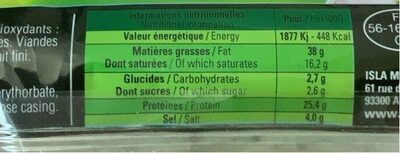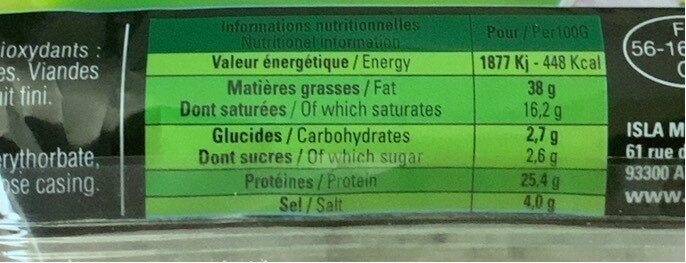La saucisse sèche volaille boeuf - Isla mondial - 1
This product page is not complete. You can help to complete it by editing it and adding more data from the photos we have, or by taking more photos using the app for Android or iPhone/iPad. Thank you!
×
Barcode: 3459860001493 (EAN / EAN-13)
Quantity: 1
Brands: Isla mondial
Categories: Meats and their products, Meats, Prepared meats, Cured sausages
Labels, certifications, awards:
Halal, fr:A Votre Service

Stores: carrefour.fr
Countries where sold: France
Matching with your preferences
Environment
Packaging
Transportation
Report a problem
Data sources
Product added on by margotte7887
Last edit of product page on by fix-serving-size-bot.
Product page also edited by driveoff, harragastudios, inf, kiliweb, kirua, off.fd7bddc0-6df7-44bc-a6f5-2f247ec90118, quentinbrd, yuka.LOlGHf6mIcMiOsf26N0-52ayLf7lWfF-CkIJoQ, yuka.NIpBP_6EIdcQFsjO14Jp9jXlLPjyIfMGKEESog, yuka.Nr9GG_ypDpMbI8v08JwK1Rq4LsjDPPR-HV02og, yuka.ZmFJak9mVXgvS05idHN3UHd6clMxUGQwMzVqMkJUcXpKdkk2SUE9PQ, yuka.sY2b0xO6T85zoF3NwEKvlmBVCeXi_B3ANRXumFOO_MiXLbLqYuMq3rjLLKg.








